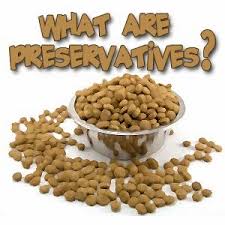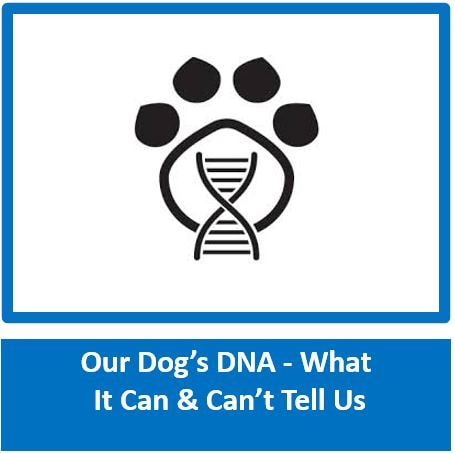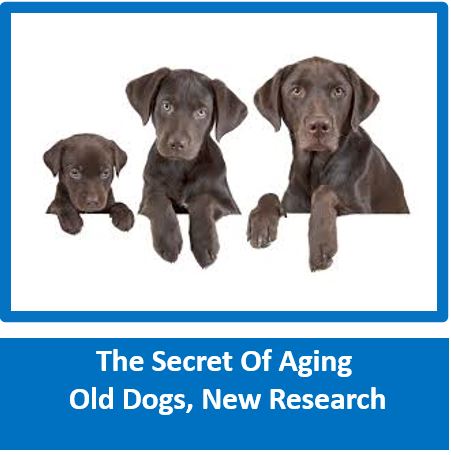|
It could well be that if your dog is experiencing skin related problems, that he has an intolerance, or even an allergy towards one or more of the preservatives in your dog food. Determining what your dog is allergice to is very time consuming and difficult, and as an allergy test This can be very hard to determine, and as our test can identify approximately 100 of the most common known allergens, can assist. Non-invasive and undertaken in the comfort of your own home. for more information
AS OF 31.3.23 SALE PRICE ONLY R1850! |
The Pros and Cons of Preservatives in Dog Foods
www.petmd.comwww.petmd.com
(This really is one of our favourite sites - do give it a visit when time allows)

Unless you are making your dog’s diet from scratch and serving it immediately, preserving dog food in some way is essential. Without preservation, food quickly spoils and can produce illness rather than the good health we are all looking to provide through optimal nutrition. There are many ways to preserve commercially prepared dog food, each of which has advantages as well as drawbacks. Read on to determine which is best for you and your dog.
Artificial Preservatives in Dog Food
Commonly used artificial preservatives in dry dog foods include ethoxyquin, butylated hydroxy anisole (BHA) and butylated hydroxytoluene (BHT). They are very effective at preventing fats from becoming rancid (the primary problem we face in preserving dry dog food) and can greatly extend the product’s shelf life (a year is typical). On the other hand, some studies have linked the ingestion of large amounts of ethoxyquin to health problems. While there is certainly no "smoking gun" out there indicating most pets need to avoid the levels of artificial preservatives currently present in dry food, out of an abundance of caution, many owners understandably prefer to avoid feeding them to their dogs.
Natural Preservatives in Dog Food
Adding natural substances such as such as vitamin E (mixed tocopherols), vitamin C (ascorbic acid), and plant extracts (e.g., rosemary) to a dry dog food can also prevent fats from becoming rancid. Unfortunately, natural preservatives are effective for shorter periods of time than are artificial preservatives, which means naturally preserved foods tend to have a shorter shelf life. As long as you purchase bags well before the "best by" date printed on the label and don’t buy excessively large amounts of food at one time, this shouldn’t be a big concern, however.
To determine whether or not a dry dog food contains only natural preservatives, look at the ingredient list. Remember that descriptions like "all natural" on the front of the bag can mean almost anything. If you see ethoxyquin, BHT, and/or BHA in the ingredient list, the food is not naturally preserved.
Artificial Preservatives in Dog Food
Commonly used artificial preservatives in dry dog foods include ethoxyquin, butylated hydroxy anisole (BHA) and butylated hydroxytoluene (BHT). They are very effective at preventing fats from becoming rancid (the primary problem we face in preserving dry dog food) and can greatly extend the product’s shelf life (a year is typical). On the other hand, some studies have linked the ingestion of large amounts of ethoxyquin to health problems. While there is certainly no "smoking gun" out there indicating most pets need to avoid the levels of artificial preservatives currently present in dry food, out of an abundance of caution, many owners understandably prefer to avoid feeding them to their dogs.
Natural Preservatives in Dog Food
Adding natural substances such as such as vitamin E (mixed tocopherols), vitamin C (ascorbic acid), and plant extracts (e.g., rosemary) to a dry dog food can also prevent fats from becoming rancid. Unfortunately, natural preservatives are effective for shorter periods of time than are artificial preservatives, which means naturally preserved foods tend to have a shorter shelf life. As long as you purchase bags well before the "best by" date printed on the label and don’t buy excessively large amounts of food at one time, this shouldn’t be a big concern, however.
To determine whether or not a dry dog food contains only natural preservatives, look at the ingredient list. Remember that descriptions like "all natural" on the front of the bag can mean almost anything. If you see ethoxyquin, BHT, and/or BHA in the ingredient list, the food is not naturally preserved.
Preserving Canned Dog Food
Feeding only canned food is another way to avoid artificial preservatives. The canning process is one of the most effective preservation methods available, so no artificial or natural preservatives need to be included in the food itself. Unopened canned food can last for years when stored in a cool, dry environment, although owners should still observe the “best by” dates that are printed on the label. Canned food is significantly more expensive than is dry (and generates more waste) but is another option for owners who want to get the artificial preservatives out of their dog’s diet.
Of course, what type of preservatives are used in a food is not the only (or even the most important) issue involved in how best to feed dogs. A combination of high quality ingredients that altogether provide balanced nutrition is what is non-negotiable.
Feeding only canned food is another way to avoid artificial preservatives. The canning process is one of the most effective preservation methods available, so no artificial or natural preservatives need to be included in the food itself. Unopened canned food can last for years when stored in a cool, dry environment, although owners should still observe the “best by” dates that are printed on the label. Canned food is significantly more expensive than is dry (and generates more waste) but is another option for owners who want to get the artificial preservatives out of their dog’s diet.
Of course, what type of preservatives are used in a food is not the only (or even the most important) issue involved in how best to feed dogs. A combination of high quality ingredients that altogether provide balanced nutrition is what is non-negotiable.





